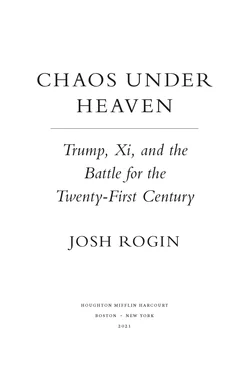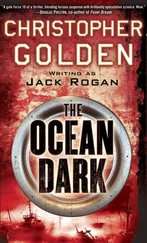Two weeks before the election, Pottinger laid out his closing argument in a video conference hosted by the Policy Exchange of London. In reasonably competent Mandarin, he said that the whole world was now, finally, having a long-overdue conversation about how China was acting outside its borders. He summed up the accomplishments of Trump’s policy as incorporating two principles into the bilateral relationship, reciprocity and candor. He warned of returning to the prevailing conventional wisdom of the past, which was to downplay the threat of the CCP’s strategy and at the same time declare there is nothing we can do about it. He called on Chinese listeners to his speech to confront their leaders about the crimes against humanity the Chinese government is perpetrating in Xinjiang. “It is in a spirit of friendship, reflection, and, yes, candor, that I ask friends in China to research the truth about your government’s policies toward the Uyghur people and other religious minorities,” he said. “There is no credible justification I can find in Chinese philosophy, religion, or moral law for the concentration camps inside your borders.”
Pottinger also argued that the CCP’s efforts to shape the politics and information environments in democratic countries, all while collecting as much data on citizens of those countries as possible, represent a new kind of digital authoritarianism that all free and democratic societies must confront. “The smart phones we use all day to chat, search, buy, view, bank, navigate, worship and confide make our thoughts and actions as plain to cyber spooks as the plumes of exhaust from a vintage doubledecker bus. Chinese Communist Party has reorganized its national strategy around harnessing that digital exhaust to expand the party’s power and reach,” Pottinger said. “The party’s goal, in short, is to co-opt or bully people—and even nations—into a particular frame of mind that’s conducive to Beijing’s grand ambitions.”
“We Laid a Trap for Them”
Throughout the Trump years, the conventional wisdom in Washington was that the administration had no real strategy for China. But it would be more accurate to say that the administration had several strategies, between which Trump wandered with varying levels of awareness or intentionality. Trump’s commitment to trusting his own gut instincts, which followed no discernible pattern, guided the course of the US-China relationship during this fateful period—and determined the relative success of the different factions’ strategies, and their rise and fall over time.
The hardliners based their strategy on their bet that they understood the CCP better than did the Wall Street clique. They predicted (correctly) that Trump would fail in his mission to set the US-China relationship on a new, fairer economic footing—not for want of trying, but because the CCP under Xi had no intention of changing its strategy to accommodate the demands of the United States. But the hardliners also knew that Trump would have to come to that realization himself. That awareness did seem to dawn on the American president, albeit very slowly.
To be sure, Trump at many points misunderstood China—just as, at many points, China totally misread the Trump administration. In the first year of his presidency, for instance, Trump, Ross, and Mnuchin didn’t understand how the CCP really viewed the US-China relationship. They believed that Xi was genuinely most interested in business, and that as a result the two sides would be able to forge a speedy and conclusive trade deal. Those pesky national security folks were mostly getting in the way, in the eyes of Trump and his top economic officials. But as they engaged with Beijing, the Trump officials in charge of those negotiations slowly learned that the CCP is primarily motivated not by business but by the interests of the party. Everyone came to understand that the security apparatus exerts the most power within the Chinese system, not the foreign ministry or economic teams.
The hardliners in the Trump administration ultimately succeeded in moving the government closer to a competitive stance vis-à-vis China than any administration that had come before. But that success was not because they had the best strategy documents or because the hardliners played their Machiavellian games more skillfully than the Wall Street clique or the engagement crowd. The hardliners came out on top because the CCP proved them right. Xi never gave the pro-engagement officials and businesspeople in Trump’s orbit any real proof that Beijing was willing to change its approach to trade, technology, or ideology one bit.
As Trump neared his referendum at the polls, Xi seemed more firmly in power than ever before and more dedicated to his mission of restoring the “China dream.” In a late October speech at the CCP’s Fifth Plenum, Xi projected confidence, preached self-reliance, and promised to speed up China’s technological, industrial, and military expansion. The official communiqué from the meeting declared, “We will surely overcome all kinds of difficulties and hindrances on the road ahead and push forward socialism with Chinese characteristics even more vigorously in the new era.”
China scholars will debate whether Xi’s confidence was genuine, much less justified. The internal dynamics at the top of the CCP are unknowable. Pottinger came to believe that the Trump administration had forced the CCP to speed up its plans, causing it to make mistakes like overreaching and bullying. The pressure the Trump administration was applying was keeping Xi on his back foot.
Still, looking back, it seems clear Beijing would have been better off if it had just made a deal in 2018 that would have satisfied Trump. The Chinese leadership would have stopped the hardliners and hawks from succeeding in their plan to turn the government and US foreign policy away from engagement and toward competition and pressure. Instead, China now faces a situation where its industrial policy is under permanent attack and the tariffs have become a fact of life. This will, over time, push the cost of manufacturing in China up at the same time Chinese workers are demanding a better lifestyle and more pay. This could result in China falling into what’s called the “middle-income trap,” a theory of economic development that warns of a situation where wages in a country rise too high to support low-end manufacturing before that country is developed enough to compete in the higher-end industries.
Since the hardliners never believed China would change its economic policies, they designed the tariffs to create ongoing pain for China’s economic abuses and slow their technological advance at the same time. The tariffs could push China into the middle-income trap and thereby dump sand into the Chinese economic machine, the theory went, although that was not the goal of the tariffs that was presented in public.
“We laid a trap for them and they walked into it,” one former White House China official told me. “You couldn’t have designed a better way to get them to initiate how this happens.”
The real significance of Trump’s Phase One deal with China is not the agricultural export commitments or the promises of intellectual property protections that Beijing will never honor. The significance is that the Phase One deal left most of the tariffs in place, raising the costs and risks of doing business with China at the same time that Xi is making his economic situation worse by exerting more party control over the economy and quashing free market reforms. That was all part of one of the Trump administration’s strategies, one that some members of the administration were more aware of than others.
“There was a design for this,” the former White House official said. “It’s just that Trump wasn’t in on it.”
Читать дальше











